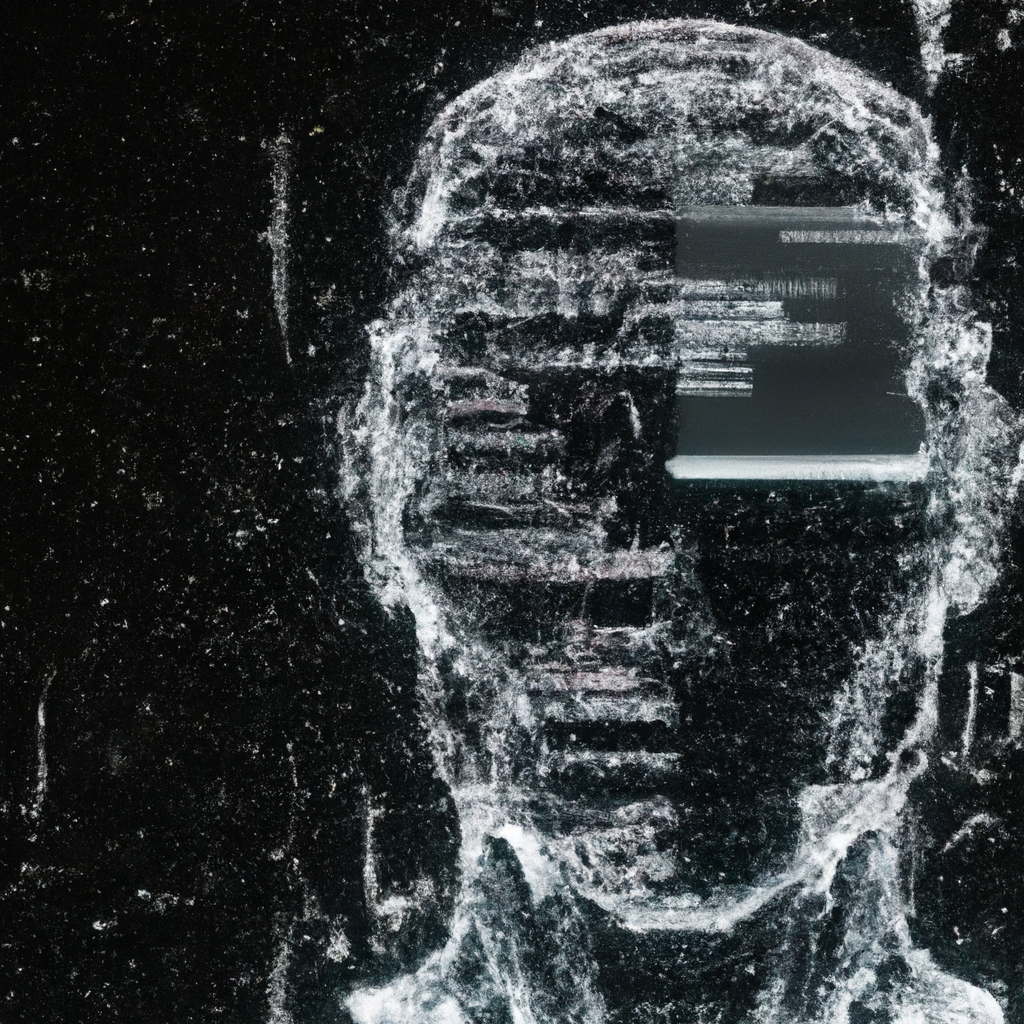Imagine a world where machines have the ability to think, learn, and make decisions just like humans. The future of Artificial Intelligence (AI) holds limitless possibilities, as it continues to evolve and transform the way we live and work. From self-driving cars to personalized virtual assistants, AI has already become an integral part of our daily lives. But what lies ahead for this rapidly advancing technology? As AI algorithms become more sophisticated and automation becomes more prevalent, the future of AI holds the promise of greater efficiency, enhanced problem-solving capabilities, and new opportunities across various industries.
Current State of AI
Advancements in AI Technology
Artificial Intelligence (AI) technology has been rapidly advancing in recent years, pushing the boundaries of what machines are capable of. One significant advancement is in the field of machine learning, where algorithms are designed to learn and improve from data without being explicitly programmed. This allows AI systems to make predictions, recognize patterns, and perform complex tasks with increasing accuracy and efficiency. Additionally, there have been significant improvements in natural language processing, computer vision, and robotics, which have enabled AI applications to understand and interact with humans and the physical world.
Current Applications of AI
AI is already being applied in various industries and sectors, revolutionizing the way we live and work. In healthcare, AI is being used for medical imaging analysis, diagnosis, and treatment recommendations, improving patient care and outcomes. Financial institutions are utilizing AI for fraud detection, risk assessment, and algorithmic trading, increasing efficiency and reducing errors. Transportation companies are exploring autonomous vehicles and intelligent traffic systems to enhance safety and reduce congestion. Education platforms are incorporating AI to provide personalized learning experiences and optimize educational outcomes. In manufacturing, AI is automating processes, enhancing productivity, and enabling predictive maintenance. Retailers are leveraging AI for demand forecasting, inventory management, and personalized customer experiences. The entertainment industry is using AI for content recommendation and generation, enhancing user experiences. These current applications demonstrate the wide-ranging impact of AI on various sectors.
Challenges and Limitations of AI
While AI shows great potential, there are still challenges and limitations that need to be addressed. One major challenge is the lack of transparency and explainability in AI algorithms. Deep learning models, for example, can produce highly accurate results, but the inner workings are often a black box, making it difficult to understand how decisions are reached. This lack of interpretability raises concerns regarding bias, fairness, and the potential for incorrect or biased predictions. Data availability and quality also present challenges for AI systems, as they heavily rely on large amounts of high-quality data for training. Additionally, ethical considerations such as privacy and data security, as well as the potential impact on job displacement, pose significant concerns that need to be carefully addressed. It is crucial to find ways to overcome these challenges to ensure the responsible and beneficial development and deployment of AI.
Future Impact of AI on Industries
Healthcare
The future impact of AI in healthcare holds immense potential. Machine learning algorithms can analyze medical records, identify patterns, and help predict diseases, leading to earlier diagnoses and more effective treatments. AI systems can assist doctors in making evidence-based decisions and reducing medical errors. Additionally, AI-enabled robotics can automate repetitive tasks in hospitals, potentially freeing up healthcare professionals to focus on more complex and critical care. AI’s ability to process large amounts of medical data and assist in decision-making has the potential to revolutionize healthcare delivery, improve patient outcomes, and increase efficiency in healthcare systems.
Finance
In the financial industry, AI is already transforming processes and decision-making. AI-powered algorithms can analyze vast amounts of financial data, detect patterns, and make accurate predictions for investment strategies. This can lead to optimized portfolio management, reduced trading risks, and improved financial planning for both individuals and institutions. AI technologies are also enhancing fraud detection by quickly detecting suspicious patterns and anomalies in transactions. With the ability to automate tasks and provide real-time insights, AI has the potential to revolutionize the finance industry by improving efficiency, accuracy, and overall financial management.
Transportation
The future impact of AI on transportation is promising. Autonomous vehicles, equipped with AI systems, have the potential to greatly enhance road safety, reduce accidents, and increase transportation efficiency. AI-powered systems can analyze real-time traffic data, optimize routes, and improve traffic flow, decreasing congestion and travel time. Moreover, AI can help enhance public transportation systems by predicting demand, optimizing schedules, and providing personalized travel recommendations. The integration of AI in transportation holds the potential to revolutionize the way we move, making it safer, more efficient, and sustainable.
Education
AI’s future impact on education is already being realized through the development of personalized learning systems. AI algorithms can analyze student data, identify individual learning patterns, and tailor educational content to meet students’ specific needs. This can lead to more engaging and effective learning experiences, promoting better academic performance. AI can also assist teachers in grading assignments, providing immediate feedback, and analyzing educational outcomes, thereby optimizing teaching methodologies. Furthermore, AI-powered educational platforms can offer adaptive curriculums, enabling lifelong learning and addressing the diverse educational needs of individuals. The future of education with AI holds great potential to enhance learning outcomes and provide more inclusive and accessible educational opportunities.
Manufacturing
AI is set to have a significant impact on manufacturing industries. AI-enabled robotics can automate repetitive and labor-intensive tasks, leading to increased productivity and cost efficiency. Smart manufacturing systems, powered by AI, can analyze real-time data from sensors and machinery, enabling predictive maintenance and minimizing machine downtime. AI algorithms can optimize supply chains, improving inventory management and reducing operational costs. Additionally, AI-based quality control systems can identify faulty products more accurately, reducing waste and enhancing product quality. AI is reshaping the manufacturing landscape, driving innovation, and boosting competitiveness.
Retail
In the retail sector, AI has the potential to revolutionize the customer experience. AI algorithms can analyze customer data and predict purchase behavior, enabling personalized recommendations and targeted marketing campaigns. Virtual shopping assistants and chatbots powered by AI can provide instantaneous customer support, improving customer satisfaction and reducing response time. AI-based inventory management systems can optimize stock levels, ensuring products are available when and where they are needed. Furthermore, AI-enabled visual recognition technology can enhance the in-store shopping experience by providing interactive and immersive experiences. The future impact of AI in retail promises to create a more personalized and convenient shopping experience for customers, while also optimizing operational efficiencies for retailers.
Entertainment
AI holds immense potential in the entertainment industry. Recommendation systems powered by AI can analyze user preferences and behaviors to suggest personalized content, improving user experiences and engagement. AI algorithms can generate customized movie trailers, music playlists, and news articles, providing tailored content to individual users. Additionally, AI is being used in the creation of virtual actors and characters, enhancing visual effects and animation. Furthermore, AI technologies are enabling virtual reality and augmented reality experiences, immersing users in interactive and engaging virtual worlds. The future of AI in entertainment is likely to further revolutionize content creation, delivery, and user experiences.

Ethical Considerations in AI Development
Privacy and Data Security
As AI increasingly relies on vast amounts of data, privacy and data security become crucial ethical considerations. AI systems need access to personal and sensitive data to deliver accurate and personalized services. Striking the right balance between utilizing personal data and protecting individual privacy is essential. Organizations must ensure robust security measures are in place to protect data from unauthorized access or misuse. Transparency in data collection and use must also be emphasized, allowing individuals to make informed decisions about sharing their data with AI systems. By prioritizing privacy and data security, AI can be developed and deployed in a responsible and trustworthy manner.
Algorithmic Bias and Fairness
Algorithmic bias and fairness are critical issues that need to be addressed in AI development. AI algorithms are trained on historical data, which may contain biases and prejudices present in society. If these biases are not properly addressed, AI systems can perpetuate and even amplify existing inequalities and discrimination. It is vital to ensure that AI algorithms are designed to be fair, unbiased, and non-discriminatory. Regular audits and evaluations of AI systems are necessary to identify and rectify any biases that may emerge. Employing diverse and inclusive teams during the development process can help mitigate these biases and promote fairness in AI technology.
Automation and Job Displacement
The potential for AI to automate tasks and replace human labor raises concerns about job displacement. While automation can lead to increased efficiency and productivity, it may also result in job losses in certain industries. It is essential to anticipate and mitigate the potential negative impact on the workforce. This can be achieved through proactive measures such as upskilling and reskilling programs, investing in education and training, and promoting the collaboration between humans and AI in the workplace. By focusing on a human-centered approach and ensuring a just transition, the future integration of AI into the workforce can be beneficial and lead to new job opportunities.
AI and the Workforce
Potential Job Disruptions
The integration of AI into the workforce has the potential to disrupt various industries and occupations. Repetitive and routine tasks that can be automated are more likely to be replaced by AI systems. This may impact jobs in sectors such as manufacturing, customer service, and data entry. However, the emergence of AI also brings new job opportunities. AI technology requires skilled professionals for development, maintenance, and oversight, creating a demand for AI specialists. Additionally, as AI systems handle more mundane tasks, human workers can shift their focus to more complex and creative endeavors. While some jobs may be disrupted, new roles and opportunities are likely to arise in the AI-driven workforce.
Collaboration between Humans and AI
Rather than completely replacing human workers, AI systems have the potential to collaborate with humans and augment their capabilities. By automating repetitive tasks and handling large amounts of data, AI can free up human workers to focus on higher-level decision-making, creativity, and problem-solving. In fields such as healthcare, AI can assist doctors in diagnosis and treatment recommendations, improving patient care. In customer service, AI-powered chatbots can handle basic inquiries, allowing human employees to address more complex issues. Collaboration between humans and AI can enhance productivity, efficiency, and innovation in the workplace, leading to better outcomes across various industries.
Upskilling and Reskilling
To ensure a smooth transition into an AI-enabled workforce, upskilling and reskilling programs are crucial. As AI systems become more prevalent, the skills required in the job market may shift. Promoting continuous learning and providing opportunities for workers to acquire new skills is essential. Upskilling programs can focus on developing skills in areas such as AI programming, data analysis, and human-machine interaction. Reskilling programs can help workers transition from jobs that may be at risk of automation to new roles that align with emerging AI-driven industries. By investing in upskilling and reskilling initiatives, individuals can adapt to the changing landscape of work and take advantage of the opportunities presented by AI.

AI in Everyday Life
Smart Homes and Personal Assistants
AI is revolutionizing how we interact with our homes through the concept of smart homes. AI-powered smart home systems can automate tasks such as adjusting temperatures, managing security systems, and controlling appliances. Personal assistants like Amazon’s Alexa and Google Assistant utilize AI to understand and respond to voice commands, providing information, managing schedules, and controlling connected devices. These AI-powered systems enhance convenience, comfort, and efficiency in everyday life, making homes more intelligent and responsive to our needs.
Virtual and Augmented Reality
AI plays a significant role in the development of virtual and augmented reality experiences. AI algorithms can analyze real-time data from users’ interactions and environments to create immersive and interactive virtual worlds. Virtual reality (VR) allows users to experience simulated environments, while augmented reality (AR) overlays digital information onto the real world. AI can enhance the realism and user experience in VR and AR applications, providing more immersive and engaging experiences for entertainment, education, and training purposes. The integration of AI and VR/AR technology has the potential to transform how we experience and interact with the digital and physical world.
Autonomous Vehicles
AI is the driving force behind the development of autonomous vehicles. Self-driving cars are equipped with AI systems that can analyze real-time sensor data to make decisions and navigate roads without human intervention. The potential benefits of autonomous vehicles include increased road safety, reduced traffic congestion, and improved transportation efficiency. AI algorithms enable the vehicles to perceive and react to their surroundings, navigate complex traffic situations, and optimize routes. Although challenges such as regulatory and safety concerns remain, the future of autonomous vehicles holds great promise in transforming the way we commute and travel.
AI and Society
Impact on Social Interactions
The continued integration of AI into society is likely to impact social interactions. AI-powered social media platforms, for instance, analyze user behavior and preferences to tailor content and advertisements. While this can enhance user experiences, it also raises concerns about the potential for echo chambers and the polarization of opinions. AI-driven virtual assistants and chatbots are also increasingly common in our daily interactions. These AI systems can mimic human-like conversations, potentially blurring the line between human communication and machine interaction. As AI becomes more integrated into society, it is crucial to study and understand its impact on social dynamics and human relationships.
Human Emotion and Empathy
An important consideration in AI development is the ability to understand and respond appropriately to human emotions. Emotional AI, also known as affective computing, aims to develop AI systems that can recognize and interpret human emotions. By analyzing facial expressions, tone of voice, and other physiological cues, AI systems can better understand and respond to human emotions, enabling more empathetic interactions. Emotional AI has the potential to enhance healthcare, mental health support, and customer service by providing personalized and empathetic responses. However, ethical concerns such as privacy and the potential for emotional manipulation must be carefully addressed in the development and deployment of emotional AI systems.
AI in Governance and Policy Making
AI’s impact on governance and policy making is an emerging area of interest. AI systems can analyze vast amounts of data and provide insights for evidence-based decision-making in areas such as public health, transportation planning, and environmental management. AI can help policymakers better understand complex social, economic, and environmental systems, enabling more informed policy development. However, there are concerns around transparency, accountability, and potential biases in AI systems used for governance. Ethical standards, regulations, and a human-centered approach to AI in governance are essential to ensure fair and responsible decision-making.

AI in Science and Research
Drug Discovery and Development
AI has the potential to revolutionize drug discovery and development processes. AI algorithms can analyze vast amounts of biomedical data, predict the effectiveness of potential drug candidates, and identify innovative treatment approaches. By accelerating the drug discovery process and reducing the costs associated with drug development, AI can aid in the development of new therapies and treatments for various diseases. Additionally, AI-enabled platforms can help researchers identify patient cohorts for clinical trials, optimize trial designs, and analyze trial outcomes, facilitating the advancement of precision medicine. The future of AI in drug discovery holds great promise for improving healthcare outcomes and transforming the pharmaceutical industry.
Data Analysis and Predictive Modeling
AI’s ability to process and analyze large amounts of data makes it invaluable in scientific research. AI algorithms can detect patterns, identify correlations, and make predictions based on complex datasets. In fields such as genomics, AI can analyze genetic sequences, identify disease-causing mutations, and accelerate the understanding of genetic disorders. In climate science, AI can analyze climate data, predict weather patterns, and enhance climate modeling. Additionally, AI can aid in areas such as astrophysics, particle physics, and materials science by enabling faster data analysis and facilitating discoveries. The integration of AI with scientific research has the potential to unlock new knowledge and accelerate advancements across various disciplines.
Citizen Science and Crowdsourcing
AI is playing a vital role in citizen science and crowdsourcing efforts. Citizen science projects involve individuals from the general public in scientific research, contributing their time, expertise, and data to help advance scientific understanding. AI technologies can assist in analyzing large volumes of data collected through these projects. AI algorithms can help process and analyze data contributed by citizen scientists, extracting valuable insights and enabling scientific breakthroughs. By harnessing the power of AI and crowdsourcing, citizen science initiatives can tackle complex scientific challenges more effectively and engage a broader community in scientific research.
AI and Creativity
Artificial General Intelligence (AGI)
Artificial General Intelligence (AGI) is the concept of AI systems that possess the ability to understand, learn, and perform any intellectual task that a human can do. While current AI technology is focused on narrow tasks and specific domains, AGI aims to develop AI systems with human-like cognitive abilities and general problem-solving skills. The development of AGI poses significant scientific and technological challenges, but if achieved, it could have transformative impacts across various industries and areas of society. AGI has the potential to revolutionize how we work, learn, and interact with machines, ushering in a new era of human-machine collaboration and innovation.
AI in Art and Music
AI is increasingly being used in artistic and musical creation. AI algorithms can generate artwork, compose music, and even create original pieces that mimic the style of renowned artists or composers. AI systems can analyze vast amounts of artistic and musical data to learn patterns, styles, and trends, enabling them to produce original works. These AI-generated creations can inspire new forms of artistic expression and push the boundaries of creativity. However, the intersection of AI and art also raises questions about the nature of creativity, the role of the artist, and the authenticity of AI-generated works. Exploring the possibilities and ethical implications of AI in art and music is an ongoing area of interest.
AI-assisted Design and Innovation
AI is revolutionizing the design and innovation processes. AI-powered tools can assist designers by analyzing vast amounts of design data, generating design variations, and providing real-time feedback. Additionally, AI algorithms can assist in product innovation by identifying trends, predicting consumer preferences, and guiding the development of new and improved products. AI can also enhance the ideation process by generating innovative ideas and designs based on user input and desired outcomes. By combining human creativity and AI-powered tools, the design and innovation process can become more efficient, iterative, and impactful.

Technological Challenges and Breakthroughs
Hardware Advancements
The future of AI relies heavily on advancements in hardware technology. AI requires significant computing power, memory, and energy efficiency to process and analyze large amounts of data in real-time. Advancements in hardware architectures, such as the development of specialized AI chips and quantum computing, are crucial for further advancements in AI technology. Specialized AI chips, like graphics processing units (GPUs) and tensor processing units (TPUs), enable faster and more efficient AI computations. Quantum computing, on the other hand, has the potential to exponentially increase computing power, enabling more complex AI algorithms and computations. Continued investment in hardware advancements is critical to support the future growth and capabilities of AI.
Quantum Computing
Quantum computing holds the potential to revolutionize AI technology. Quantum computers can leverage the principles of quantum mechanics to perform calculations and algorithms that are currently infeasible for classical computers. This includes exponentially faster computation for certain tasks, enabling the processing and analysis of larger and more complex datasets. Quantum machine learning algorithms can lead to significant advancements in pattern recognition, optimization, and other AI applications. While quantum computing is still in its early stages, ongoing research and development are expected to unlock new possibilities for AI and drive future breakthroughs.
Emotional AI
Emotional AI, also known as affective computing, focuses on developing AI systems that can recognize, interpret, and respond to human emotions. This area of research aims to bridge the gap between AI systems and human emotional intelligence. Emotionally intelligent AI systems can recognize and understand human emotions through facial expressions, tone of voice, and other physiological cues, enabling more personalized and empathetic interactions. The development of emotional AI has the potential to enhance healthcare, customer service, and various other industries where emotional intelligence plays a crucial role. While challenges such as privacy and ethics remain, ongoing advancements in emotional AI are paving the way for more emotionally aware and responsive AI systems.
Societal Challenges and Concerns
Existential Risks
As AI technology advances, concerns have been raised regarding the potential existential risks associated with AI development. The concept of artificial general intelligence, where AI systems possess human-like cognitive abilities, raises questions about their potential impact on society and humanity as a whole. In the wrong hands or with inadequate safeguards, AGI could pose risks such as loss of control, unintended consequences, and malicious use. Ensuring the responsible development and deployment of AI is crucial to mitigate these risks and address concerns associated with its long-term impact.
AI Arms Race
The rapid development of AI has fueled concerns about an AI arms race. Countries and organizations are investing heavily in AI research and development to gain a competitive edge in various fields and industries. The pursuit of AI superiority can lead to the militarization of AI technologies, potentially leading to an arms race where AI is used for offensive purposes. International collaboration and the establishment of ethical and legal frameworks are necessary to prevent the escalation of an AI arms race and promote the responsible use of AI technologies for the benefit of humanity.
Ethical and Legal Frameworks
The ethical and legal considerations surrounding AI development and deployment are critical to ensure the responsible and beneficial use of AI. Ethical frameworks need to be established to guide the development and deployment of AI systems. Fairness, transparency, accountability, and privacy must be prioritized in AI algorithms and systems. Legal frameworks must also keep pace with advancements in AI, addressing concerns such as liability, accountability, and potential biases. International cooperation and collaboration are essential to establish consistent ethical and legal standards that reflect the global impact of AI and protect the rights and well-being of individuals and societies.
In conclusion, the future of AI holds significant promise across multiple industries and society as a whole. Advancements in AI technology are enabling innovative applications and transforming the way we live and work. However, it is essential to address the challenges and limitations of AI, ensuring transparency, fairness, and ethical considerations in its development and deployment. The impact of AI on the workforce will require proactive efforts to upskill and reskill individuals, fostering collaboration between humans and AI. AI’s integration into everyday life will enhance convenience and transform various aspects of our lives, while AI’s impact on society will necessitate further exploration and understanding of its effects on our social dynamics and governance. In the fields of science, creativity, technology, and society, AI is poised to drive breakthroughs and push the boundaries of what is possible. By navigating the technological, ethical, and societal challenges, AI has the potential to revolutionize industries, provide immense benefits, and contribute to the overall advancement and well-being of humanity.










